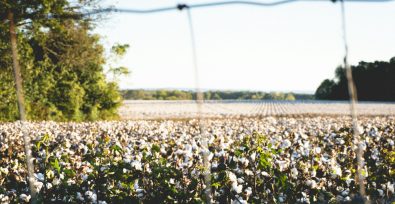Leaving behind schools, hospitals, and government offices, each harvest season thousands of citizens are forced to labor across cotton fields in Tajikistan, Turkmenistan, and Uzbekistan. Not only does it leave vital government services understaffed, but it also means despite claims to the contrary, forced labor is still woven into cotton production in Central Asia.
Public servants turned cotton pickers
Working from sunrise to sunset with only a short break for lunch. Told to bring folding beds and sleep in makeshift dorms near the cotton fields for weeks if not months. Workers and rights groups are all telling the same story. Authorities in Central Asia are still using public employees for forced labor. With workers reporting threats of being fired, disciplinary action or expulsion from school, it’s clear state-sponsored forced labor is still taking place throughout the region.
A teacher who wished to remain anonymous told Radio Free Europe:
All employees of our schools — teachers, guards, and administrative and technical staff — are picking cotton. We were ordered that if someone asks we should say we came of our own free will.
And while picking, the cost of all meals is deducted from the worker’s pay. If someone can’t take part due to health or age, they are required to hire a replacement at their own expense. The lucky ones are those who can afford to bribe officials and get out of the backbreaking work.
A deeply rooted economic problem
Central Asia’s rural economies rely on cotton, particularly in Tajikistan, Turkmenistan, and Uzbekistan. Harvesting about 1.3 million tons a year, Uzbekistan is one of the world’s top 10 producers. It is followed by Turkmenistan and then Tajikistan in volume.
Following intense international pressure, including by Freedom United supporters, the practice of using forced labor for the harvest has been reduced. But despite reforms, the deep-rooted structure of the region’s cotton economy still depends on coercion.
A local economist, who asked not to be named, said the problem lies in the economics of cotton production saying:
Sending students and state workers to the fields while pretending it’s voluntary isn’t a solution. If the government raised payments for pickers and farmers — who are underpaid because the state takes most of the profit — many people would join willingly.
According to Uzbek President Mirziyoev the practice of forced labor had been “completely eliminated.” However, advocates say proclamations and new labels like “voluntary participation” just mask business as usual.
Reform or rhetoric?
Alisher Ilkhamov, director of the UK-based research group Central Asia Due Diligence said:
The cotton sector in these countries remains unreformed, Mirziyoev’s reforms were political — they stopped mass mobilization for a while — but the centralized system hasn’t changed.
In Ilkhamov’s opinion, as long as the government keeps setting production quotas and prices, nothing will change. Local authorities will keep having to force people to work in order to meet those targets. The system needs reform from the roots to the top. Only then can forced labor be permanently removed from the region’s cotton supply chain. Help put the pressure on by signing our petition to demand that governments around the globe ensure that people are put before profit by passing robust mandatory human rights due diligence laws.







Freedom United is interested in hearing from our community and welcomes relevant, informed comments, advice, and insights that advance the conversation around our campaigns and advocacy. We value inclusivity and respect within our community. To be approved, your comments should be civil.